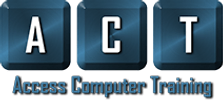In the fast-paced world of Information Technology (IT), staying ahead of the curve is critical for career advancement. The industry is constantly evolving, with new technologies and methodologies being introduced at a rapid pace. However, many professionals in the IT field are still relying on outdated skills, and this is holding them back from progressing in their careers. If you’ve been feeling stuck or stagnant in your IT role, it might be time to assess whether your skillset is up to date.
In this blog, we’ll explore why relying on outdated skills is preventing you from advancing in IT, how you can stay relevant, and the key skills you need to focus on to move forward in your career.
The Rapid Evolution of the IT Industry
The IT industry is one of the most dynamic fields today. With the rise of cloud computing, artificial intelligence, cybersecurity threats, and big data, companies are constantly looking for IT professionals who are skilled and certified in the latest technologies.
However, if you’re still working with old programming languages, outdated systems, or legacy technologies, you’re likely missing out on the opportunities that these new technologies bring. Employers today prioritize candidates with skills and certifications required in cutting-edge technologies, such as:
- Cloud Computing: Platforms like AWS, Azure, and Google Cloud are in high demand.
- Artificial Intelligence and Machine Learning: AI is becoming a core component of many businesses.
- Cybersecurity: As cyber threats increase, so does the demand for skilled professionals in this area.
- Data Analytics: Organizations are looking for IT pros who can analyze and manage big data.
By relying on outdated skills, you risk becoming irrelevant in a field that’s constantly changing.
Outdated Skills vs. Modern IT Skills
It’s important to recognize the difference between outdated IT skills and the modern skills that are currently in demand.
Outdated skills could include:
- Old programming languages that are no longer widely used.
- Legacy systems that have been replaced by more efficient technologies.
- Traditional project management approaches that lack the flexibility of modern methodologies.
Modern IT skills include:
- Cloud Infrastructure Management: Many businesses are transitioning to cloud environments, and professionals with expertise in cloud platforms like AWS or Azure are in high demand.
- Automation Tools: Automation in IT has become a game changer, and skills in DevOps and infrastructure automation tools like Jenkins, Ansible, or Puppet are increasingly sought after.
- Cybersecurity Certifications: As security threats grow more sophisticated, having up-to-date cybersecurity skills and certifications like CompTIA Security+, CISSP, CEH or Pentest can set you apart.
- AI and Machine Learning: Being able to work with AI frameworks and algorithms can give you a competitive edge in various IT roles.
If your skills lean more towards the outdated side, it’s time to start upgrading them.
Why Outdated Skills Hold You Back
There are several reasons why relying on outdated skills can prevent you from advancing in IT.
1. Decreased Job Opportunities
As companies modernize their technology stacks, they seek IT professionals who can work with newer systems and methodologies. If your resume highlights skills that are no longer relevant with expired or no certifications you might struggle to land interviews for top-tier IT jobs.
For example, a network administrator with knowledge in traditional LAN/WAN management might find themselves outpaced by a candidate who has cloud networking skills, something CompTIA’s Network+ and Cloud+ certifications from Access Computer Training can provide.
2. Lower Salary Potential
IT is one of the highest-paying industries, but salaries are often tied to the skills you bring to the table. Professionals with up-to-date certifications and knowledge in fields like cloud computing, cybersecurity, and data science are earning significantly more than those with older, less relevant skills.
When your skillset is outdated, your value in the job market diminishes, and this can lead to fewer raises, slower career growth, and lower salary potential.
3. Limited Career Advancement
Outdated skills can severely limit your chances for promotion. In many cases, IT professionals who fail to stay current with the latest trends and technologies find themselves overlooked for leadership positions.
In roles like IT project management or system architecture, being knowledgeable about modern approaches like Agile, DevOps, or cloud-based systems is critical. Without these skills, it’s harder to advance into management or strategic roles.
4. Difficulty Adapting to Change
The IT landscape is all about adaptability. When your skills are outdated, it becomes harder to adjust to new systems, workflows, and tools. Employers are looking for individuals who can quickly adapt to change, and being stuck in the past makes that difficult.
For instance, as companies move to DevOps and automation, IT staff who are still working with manual processes may find it harder to keep up with the changing workflows.
How to Identify If Your Skills Are Outdated
Not sure if your skills are outdated? Here are some signs that it’s time to re-evaluate your expertise:
- You find yourself using the same technology stack or programming languages year after year without learning anything new.
- You don’t feel confident discussing the latest trends in cloud computing, cybersecurity, or AI with colleagues.
- Job descriptions in your field list skills you’ve never heard of or worked with.
- You struggle to keep up with newer team members who are more familiar with current technologies.
If any of these apply to you, it’s time to consider upgrading your skillset.
Steps to Upgrade Your IT Skills
The good news is that it’s never too late to upgrade your skills. Here are some steps you can take to stay relevant in the IT industry:
1. Take Certification Courses
One of the most effective ways to update your skills is by earning new certifications. Courses like CompTIA A+, Network+, Security+, Cloud+, CySA+ and Pentest+ can help you gain knowledge in the latest technologies. Certifications also signal to employers that you’re committed to staying current in the field
2. Embrace Continuous Learning
IT professionals who succeed in their careers understand the importance of continuous learning. Whether through online courses, webinars, or self-study, committing to ongoing education will help keep your skills sharp.
3. Stay Active in the IT Community
Attending industry conferences, participating in online forums, and networking with other IT professionals are great ways to stay up-to-date on the latest trends. Being part of the IT community helps you understand where the industry is headed and what skills you need to stay relevant.
4. Experiment with New Technologies
Don’t wait for your employer to provide training. Take the initiative by experimenting with new technologies in your own time. For example, set up a virtual lab to practice using cloud infrastructure or try coding a simple AI algorithm. Hands-on experience can accelerate your learning and help you build confidence with new skills.
Conclusion
In the ever-evolving world of IT, relying on outdated skills will prevent you from advancing in your career. The technology landscape is constantly changing, and to stay competitive, you need to continuously update your knowledge and expertise. By upgrading your skills, earning new certifications, and staying informed about industry trends, you can ensure that you’re always at the forefront of the IT field.
Don’t let outdated skills hold you back—embrace the future of IT and position yourself for long-term success starting with current industry recognized certifications through Access Computer Training.







